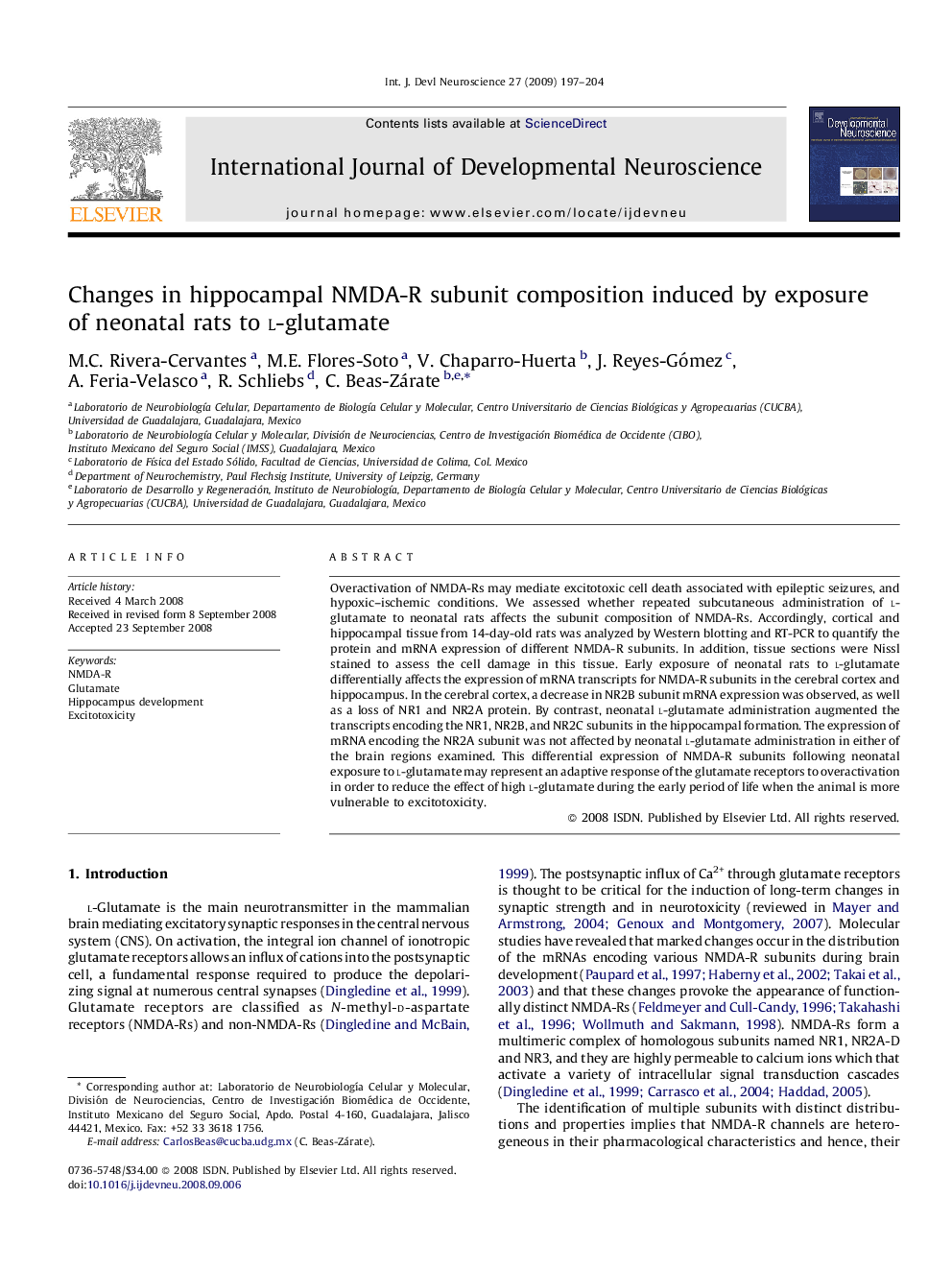| Article ID | Journal | Published Year | Pages | File Type |
|---|---|---|---|---|
| 2786444 | International Journal of Developmental Neuroscience | 2009 | 8 Pages |
Overactivation of NMDA-Rs may mediate excitotoxic cell death associated with epileptic seizures, and hypoxic–ischemic conditions. We assessed whether repeated subcutaneous administration of l-glutamate to neonatal rats affects the subunit composition of NMDA-Rs. Accordingly, cortical and hippocampal tissue from 14-day-old rats was analyzed by Western blotting and RT-PCR to quantify the protein and mRNA expression of different NMDA-R subunits. In addition, tissue sections were Nissl stained to assess the cell damage in this tissue. Early exposure of neonatal rats to l-glutamate differentially affects the expression of mRNA transcripts for NMDA-R subunits in the cerebral cortex and hippocampus. In the cerebral cortex, a decrease in NR2B subunit mRNA expression was observed, as well as a loss of NR1 and NR2A protein. By contrast, neonatal l-glutamate administration augmented the transcripts encoding the NR1, NR2B, and NR2C subunits in the hippocampal formation. The expression of mRNA encoding the NR2A subunit was not affected by neonatal l-glutamate administration in either of the brain regions examined. This differential expression of NMDA-R subunits following neonatal exposure to l-glutamate may represent an adaptive response of the glutamate receptors to overactivation in order to reduce the effect of high l-glutamate during the early period of life when the animal is more vulnerable to excitotoxicity.
